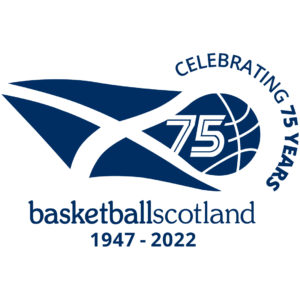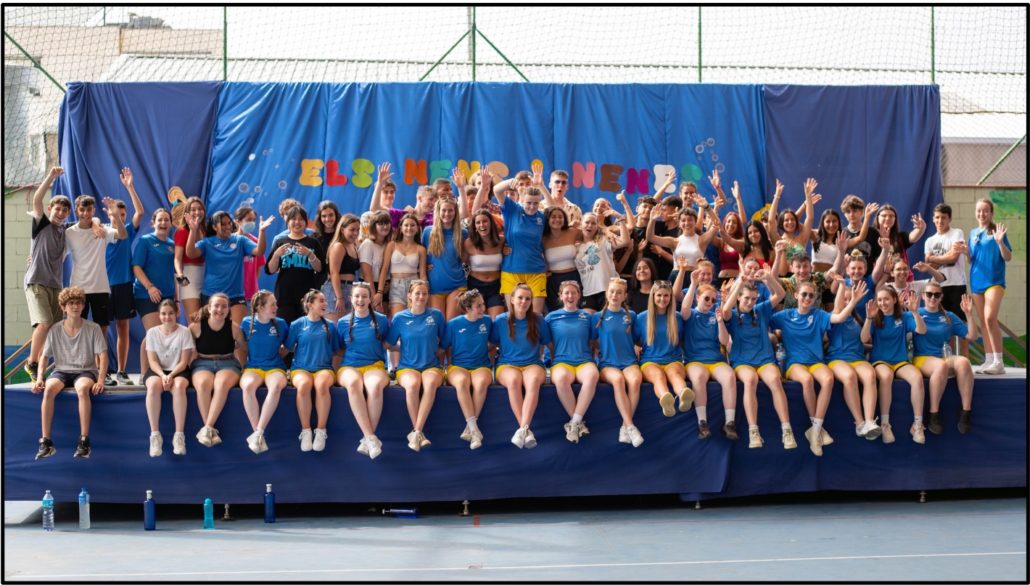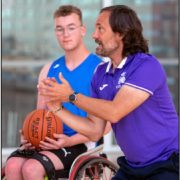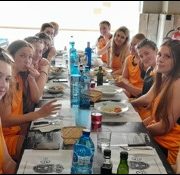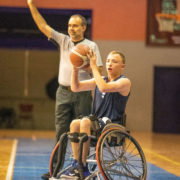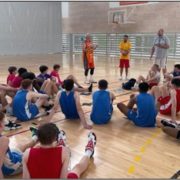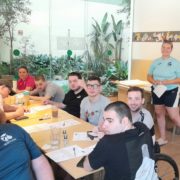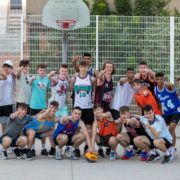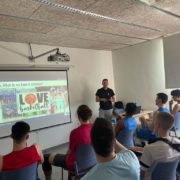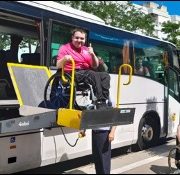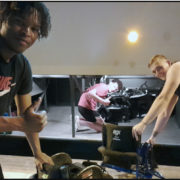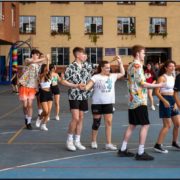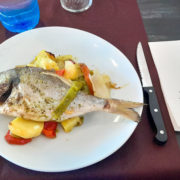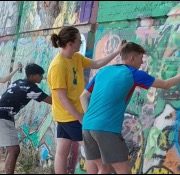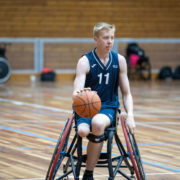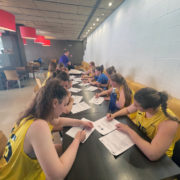Experiencing An Overseas Professional Environment for Scotland’s Running and Wheelchair Basketball Athletes
Over four weeks in the summer of 2022, 117 players from the basketballscotland National Academy, covering multiple age groups from both the running and wheelchair game, travelled to Barcelona, Spain, to gain a better understanding of the game and how it is played worldwide.
Funded by Erasmus+ – the EU’s programme to support education, training, youth and sport in Europe – the trips gave our players and coaches an opportunity to experience an overseas professional basketball environment, which included plenty of learning, games and cultural activities.
Going into the trips, all players had multiple outcomes to work towards. They were:
- Improved technical and tactical basketball skills.
- A better understanding of the game and how it is played worldwide.
- Experience of playing under a much higher level of pressure.
- Increased understanding of the level of play out with the UK and what is required to compete effectively.
- Enhanced understanding of what it takes to train and compete in the professional environment
- Experiencing living abroad and the challenges that being a professional in another country might pose.
- Creating opportunities for future careers as professional players.
- Developing the ability to live independently and experience being away from home.
In addition to the above, wheelchair athletes would also benefit from:
- Gaining experience of being away from primary carer for extended period of time.
- Improved self-confidence and ability to cope with the challenge of overseas travel.
Once players had returned, a player survey run by basketballscotland regarding the learning outcomes saw 98% of players state that they had ‘improved in’ and ‘learned more about’ all of the outcomes above during their time on the Erasmus trip.
For many of our players, this was their first experience traveling abroad in a high-performance sporting environment, a moment everyone was very excited for. The trip also provided players with the challenge of living independently and being responsible for themselves, while experiencing being away from home.
“The Erasmus trip was one of my best basketball experiences. Although the heat was hard to handle, it was a very big learning trip for me, and I feel like I developed a lot as a player and individual as we learned and lived in a whole different culture. If I had the chance, I would do it all over again without a doubt.” – Sam Walker, Scotland U16 player.
During their time in Spain, all players got the opportunity to learn from multiple basketball professionals. From coaches and referees to strength and conditioning instructors, 3×3 specialists and even professional players. Our players were able to experience developing their skills from the best.
The 3×3 tournament was a great opportunity to play a different style of basketball and get to compete with some top local teams while enjoying the sun (a rarity for us Scots!) I loved the fast pace and constant engagement that 3×3 required. We had a strong team which made it all the more fun and obviously it was brilliant to go there and win the tournament. – Zoe Sharpe, Scotland U16 player.
As much as the on-court time was a principal element of our players day-to-day to give them a heightened understanding of what it takes to train and compete in the professional environment, it was also important for them to experience the culture and lifestyle of living away from home.
The trips were packed with cultural activities. With players visiting a local school to learn traditional Spanish dancing, taste traditional Spanish food and help students study for upcoming exams. Historical landmark visits, to places such as the La Sagrada Familia, were also on the agenda for everyone.
The school visit was not the only time that players were able to experience the local cuisine, with lunch and dinner often giving them the opportunity to try something new and learn about what food would fuel their body for exercise in the Spanish heat.
Although a bit more than anyone expected, players also had to learn how to deal with the challenges of international travel. From lost luggage and cancelled flights, leaving players and staff stranded halfway through their homewards journey, to the more simpler travel challenges of getting to a from venues. Our players did well learning how to adapt to new and difficult situations, while still representing Scotland to their absolute best.
It was not just new basketball knowledge that participants came home with, as they all successfully achieved a SCQF level 5 accreditation in Goal Setting during classroom sessions.
Jacqueline Anderson, basketballscotland’s Basketball Social Impact Officer who was responsible for delivering the qualification course to players commented: “Within the goal setting qualification, the young people looked goal setting in both their personal life and sporting life as well as their teams goals. Allowing the young people to explore different aspects and tools involved in goal setting and how they can apply this in a real-life context. It really benefited a lot of their self-awareness and cohesion as a team and they young people responded well when having this time, during a busy period, to self-reflect and set goals for the future”
basketballscotland staff and coaches also got the opportunity to take a lot of learnings from the trip which will help us to work on and improve on the broader priority objectives of the trip.
- Increased grassroots participation at a younger age by helping clubs to introduce Spanish initiatives and mobility outcomes into their community engagement processes and assist them to enhance existing school community programmes.
- Reduce gender imbalance between male and female participation in playing, competing, and coaching, with the introduction of a key initiatives that have been used so successfully in Spain to attract more women and girls at all levels of the sport.
- Increased numbers of quality coaches to support the game – from quality playing experiences at local level to developing elite players to participate at the highest level.
- Use of Spanish best practice to markedly improve talent identification efficiency at an early age, improve retention rates and provide a much more efficient and reliable player development pathway to produce a larger crop of elite players.
“It was a great experience!” commented U18’s coach, Amanda McQueen. “The staff and coaches were so supportive over the two weeks. For our coaches and players, being put into an environment you are unfamiliar with, it drives you to perform at a level you have never reached.”

